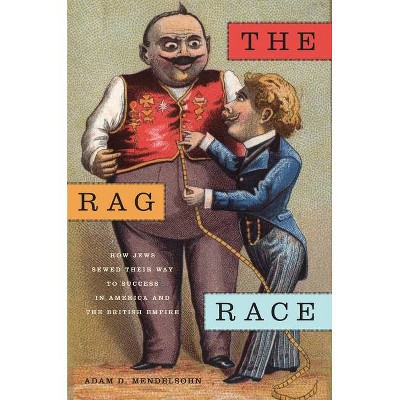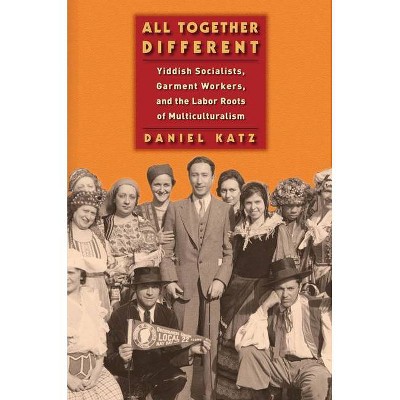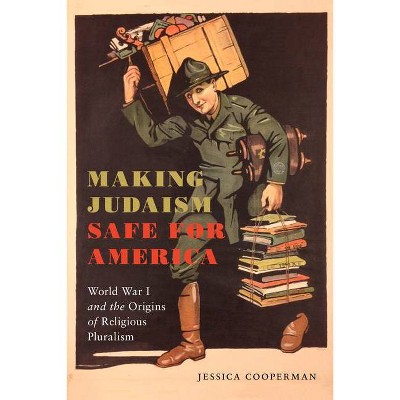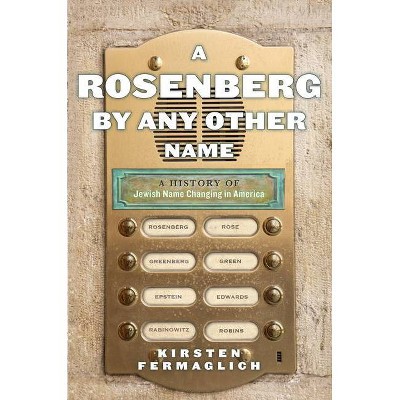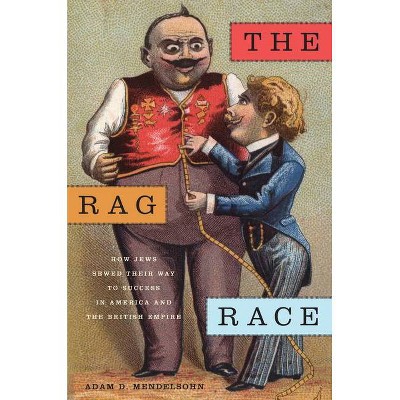Cotton Capitalists - (Goldstein-Goren American Jewish History) by Michael R Cohen (Hardcover)
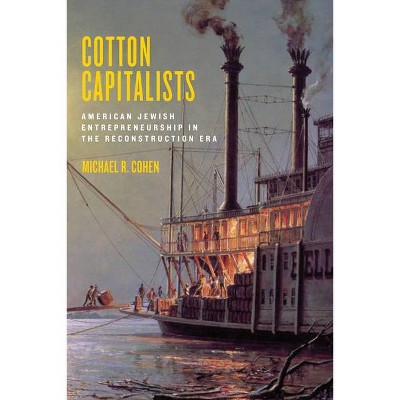
Similar Products
Products of same category from the store
AllProduct info
<p/><br></br><p><b> Book Synopsis </b></p></br></br><p><b><i>Honorable Mention, 2019 Saul Viener Book Prize, given by the American Jewish Historical Society</i></b> <p/><b>A vivid history of the American Jewish merchants who concentrated in the nation's most important economic sector </b> <p/>In the nineteenth century, Jewish merchants created a thriving niche economy in the United States' most important industry-cotton-positioning themselves at the forefront of expansion during the Reconstruction Era. Jewish success in the cotton industry was transformative for both Jewish communities and their development, and for the broader economic restructuring of the South. Cotton Capitalists analyzes this niche economy and reveals its origins. Michael R. Cohen argues that Jewish merchants' status as a minority fueled their success by fostering ethnic networks of trust. Trust in the nineteenth century was the cornerstone of economic transactions, and this trust was largely fostered by ethnicity. Much as money flowed along ethnic lines between Anglo-American banks, Jewish merchants in the Gulf South used their own ethnic ties with other Jewish-owned firms in New York, as well as Jewish investors across the globe, to capitalize their businesses. They relied on these family connections to direct Northern credit and goods to the war-torn South, avoiding the constraints of the anti-Jewish prejudices which had previously denied them access to credit, allowing them to survive economic downturns. <p/>These American Jewish merchants reveal that ethnicity matters in the development of global capitalism. Ethnic minorities are and have frequently been at the forefront of entrepreneurship, finding innovative ways to expand narrow sectors of the economy. While this was certainly the case for Jews, it has also been true for other immigrant groups more broadly. The story of Jews in the American cotton trade is far more than the story of American Jewish success and integration-it is the story of the role of ethnicity in the development of global capitalism.</p><p/><br></br><p><b> Review Quotes </b></p></br></br><br>For a few decades after the Civil War, Jewish Americans played a key role in the southern cotton economy, infusing European and New York capital into the fields of a region still devastated by war, while organizing the trade in a crop central to the nation. Charting the rise and fall of this southern cotton complex, Cohen emphasizes the role of dense ethnic networks in fostering the all-important trust in which trade and credit were embedded. An important contribution to American economic history.--Sven Beckert, author of Empire of Cotton<br><br>Historian Cohen (Tulane) presents a different perspective, examining the role of Jewish merchants in the antebellum South as they transitioned from peddlers to shopkeepers and extended credit and goods to local cotton producers[Making] excellent use of the R. G. Dun credit reports and the American Jewish Archives, Cohen effectively argues that ethnic networks were important to these small Jewish businesses as they participated in the cotton economy.-- "Choice"<br><br>Michael Cohen masterfully narrates how Jewish merchants provided much needed credit in the South following the Civil War. This eloquent study reminds us that we cannot fully understand the Souths economic revival in the age of reconstruction without looking at the critical role played by immigrant Jewish merchants.--Rebecca Kobrin, Knapp Associate Professor of American Jewish History, Columbia University<br><br>Michael R Cohens...well-written book, reveals how the incomers familial and, so to speak, tribal links with northern financiers and others across the world, modernised business in the South indeed, that these few hundred Jews played a key role in building the cotton economy of the South towards its crescendo in the 19th and 20th.-- "The Jewish Chronicle"<br><br>This model study exposes the previously unknown Jewish ethnic network that filled a critical niche in the southern cotton trade during the second half of the nineteenth century. A major contribution with broad implications for students of economic history, Jewish history, and the history of the American South.--Jonathan D. Sarna, author of When General Grant Expelled the Jews<br>
Price History
Price Archive shows prices from various stores, lets you see history and find the cheapest. There is no actual sale on the website. For all support, inquiry and suggestion messages communication@pricearchive.us


